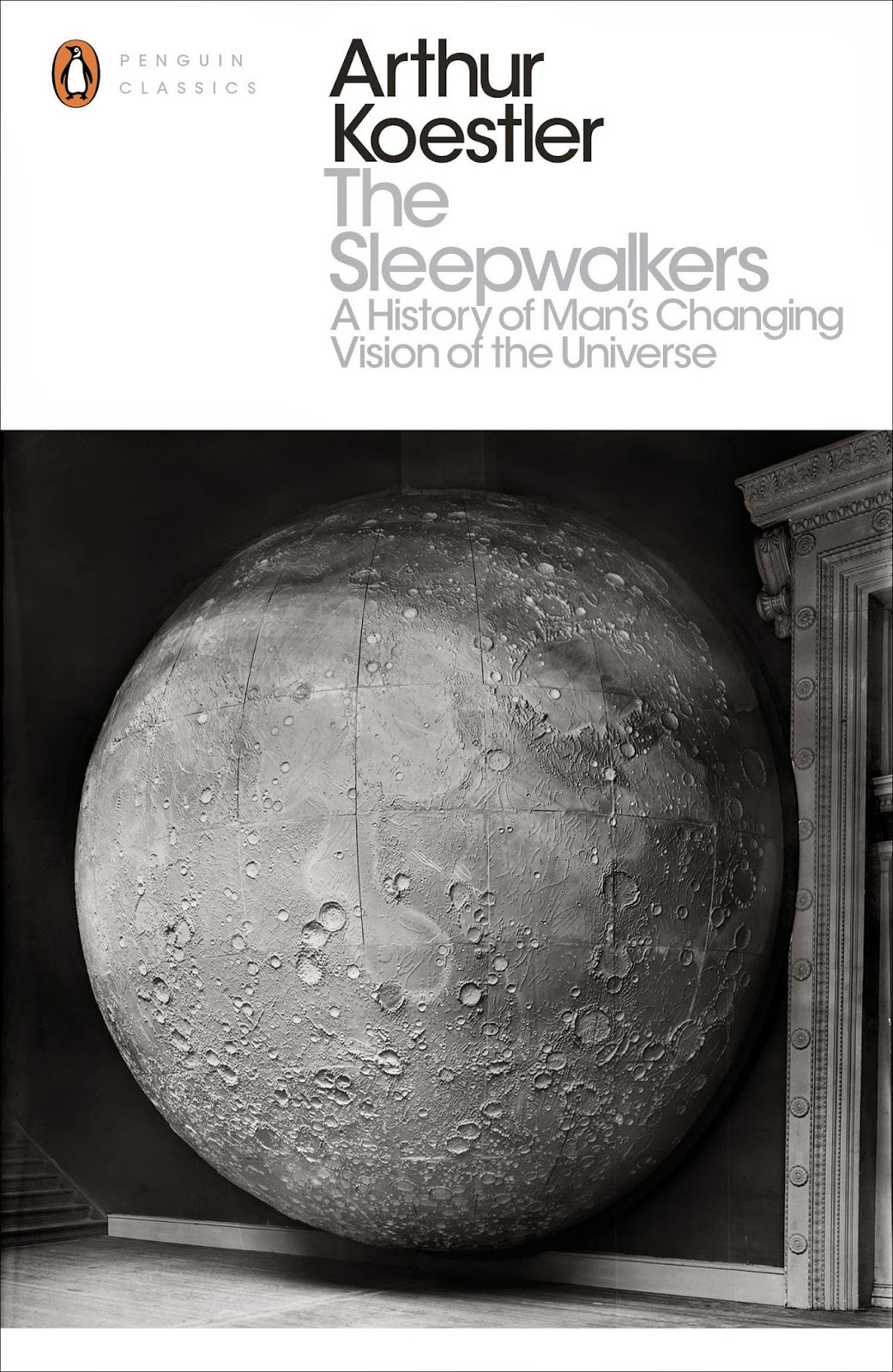 Staff Review by Chris Saliba
Staff Review by Chris SalibaArthur Koestler’s 1959 history of astronomy, with its cast of key figures such as Copernicus, Kepler and Galileo, is an awe inspiring achievement.
The basic theory behind Arthur Koestler’s The Sleepwalkers is that major scientific discoveries in the areas of cosmology and astronomy were more stumbled upon than deduced calmly and rationally. The giant thinkers who revealed some of the universe’s secrets didn’t do so by following a methodical path, one foot in front of the other. They were more accurately “sleepwalkers”, fumbling around in the dark until by chance enlightenment came. One of the lessons The Sleepwalkers teaches us is that dogged persistence, while not particularly rational or neat as a method, will pay off.
The book is organised as a history of astronomy from Pythagoras through to Copernicus, Kepler, Galileo and finishing rather briefly with Newton. Classical Greek thought on astronomy is introduced, then the dark Medieval period is examined, where all the intellectual gains of the ancient world were put on ice for some 1500 years. Koestler blames this intellectually inert period on Plato, who taught against empirical evidence.
That makes up the first hundred pages of a five hundred page book. The next hundred pages is devoted to Copernicus. Koestler’s portrait of Copernicus is none too flattering, accusing him of being far too timid in pushing forward his ideas and discoveries. He actually just falls short of calling him a coward. The main part of the book, the middle two hundred pages, is devoted to Johannes Kepler (1571-1630), the German mathematician and astronomer. Kepler is really the hero of The Sleepwalkers, more because Koestler is fascinated by (and enamoured of) him than anything else. This really is a book that wears its biases on its sleeve. In the section on Galileo (last one hundred pages), Koestler openly admits that he is biased to a particular historical interpretation of the events surrounding the famous astronomer and mathematician. In many ways, Koestler almost inserts himself as a key player into the narrative, his intellectual presence and personality are so strong. Many of the quotes he uses are full of his own italics, nudging the reader in a particular interpretive direction.
As a result, The Sleepwalkers is quite lopsided, choppy and opinionated. It pushes its own agenda and intellectual hobby horses. It’s also quite a demanding read, although it must be stated that there’s nothing opaque in Koestler’s writing. He at all times strives for clarity, and when explaining complex astronomical principles, he uses simple analogies and similes. As a communicator he is very much the reader’s friend.
All of the foregoing probably makes The Sleepwalkers sound like a nightmare of a book. While it is challenging, it’s also enormously rewarding. Koestler obviously knows his subject back to front. What the book really does is examine in fine detail the changing relationship between science and religion throughout history. Koestler was also an accomplished novelist, and through his incredibly nuanced portraits of thinkers like Copernicus, Galileo and Kepler, he takes us into the heart and soul of seventeenth century Europe, where all these momentous changes were taking place. The book very much looks at the volatile intersection between politics, religion and science. What may surprise many is Koestler’s liberal minded opinion when assessing church authority. The church was ready to reposition its worldview in line with scientific thought, he says, as long as it wasn’t pushed. Galileo pushed, which was what got him into trouble.
Philosophically Koestler wanted to be able to synthesise science and faith. He lamented how the ancients such as Pythagoras could believe in God and also devote their lives to science, but in modern times science had become totally divorced from faith. The last chapter is devoted to criticising modern day science for being too abstract and self-referential.
“Our hypnotic enslavement to the numerical aspects of reality has dulled our perception of non-quantitative moral values; the resultant ends-justifies-the-means ethics may be a major factor in our undoing.”
This is a huge book, full of big ideas and questions central to our place in the universe. It may not be for everyone, but it will certainly open your mind up.
The Sleepwalkers: A History of Man's Changing Vision of the Universe, by Arthur Koestler. Published by Penguin. ISBN: 9780141394534 RRP: $24.99
No comments:
Post a Comment